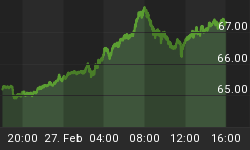This morning's UK data have further increased the odds of a Q1 2007 rate hike from the Bank of England (BoE), with markets firmly pricing in expectations of a 5.25% repo rate by the end of March. While the interest rate outlook certainly remains to the upside - and the minutes of the December 7 meeting of the Monetary Policy Committee (MPC) show at least some of the nine members remain in a hawkish mood - the Committee overall is in a wait-and-see stance. In particular, the members are closely watching the fabled January pay round.
The two data releases that sent interest rate expectations soaring this morning were the Confederation of British Industry's distributive trades survey and the British Bankers' Association (BBA) mortgage lending survey. The former reported that December sales volumes soared to a rate not seen in two years, with the survey balance jumping from -9 in November to +25 in December. Combined with last week's better-than-expected official retail sales data for November, this does suggest that the doom-and-gloom attitude of some retailers has been overdone, and that Brits are quite inclined to spend this holiday season. Still, the month isn't over yet, and it remains to be seen how much shoppers will feel like spending next month, during the traditional and also-crucial New Year sales period.
The BBA reported that underlying net mortgage lending scored its strongest monthly increase on record in November, rising by £6.5 billion, up from the £5.6 billion increase seen in October and the £5.7 billion monthly average of the past six months. Credit card lending rose £66 million, compared with an average monthly fall of £247 million over the last six months. Separately, the Building Societies Association reported that loan approvals were up a seasonally adjusted 16.5% in November, totaling £4.85 billion, up from £4.31 billion in October, and also the highest on record. All told, it seems that the August rate hike had no dampening effect on the demand for mortgages. It remains to be seen whether last month's tightening will start to curb demand in the New Year.
Which takes us to the minutes of the December 7 MPC meeting. All nine members voted to keep rates on hold, and no-one argued in favor of the need for an imminent shift - no great surprises there. Some members were focused on the upside risks to inflation, citing rapid money growth, and warned that the recent pick-up in headline inflation (see Daily Global Commentary, December 14: The Odds of a Q1 Rate Hike from the Bank of England Edge Upward) could affect forthcoming pay increases. Others noted the downside risks from the expected US slowdown, subdued consumption growth, and some continued slack in the labor market. Interestingly, the members noted the view that immigration (which could be partly responsible for strong housing demand, at least in some regions) could keep a check on wage demands, even as workers' mortgage payments and utility bills head upward.
All told, the MPC is focused on the data, waiting to see how the past two rate hikes will filter through the economy, and just what will happen with the New Year wage deals. Meanwhile, data to watch over the coming weeks include the GfK consumer confidence survey for December (Dec. 29), November consumer credit (Jan. 4), December inflation (Jan. 16), November earnings and November-December labor market data (Jan. 17), and December retail sales (Jan. 18). The January meeting of the MPC - which is highly unlikely to result in any rate change - will be held on the 11th, with the meeting minutes released on the 24th.















